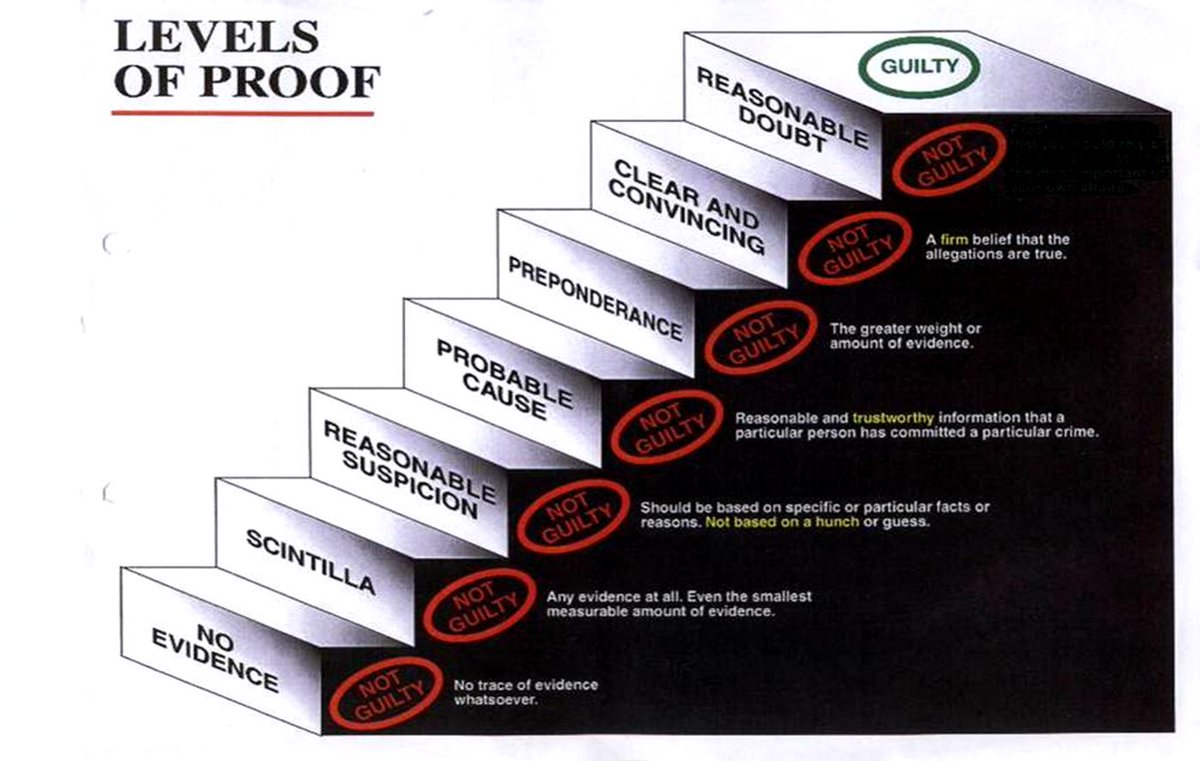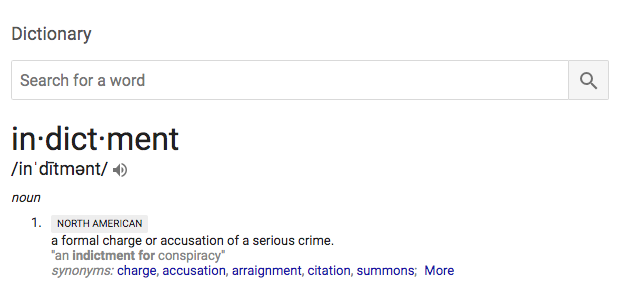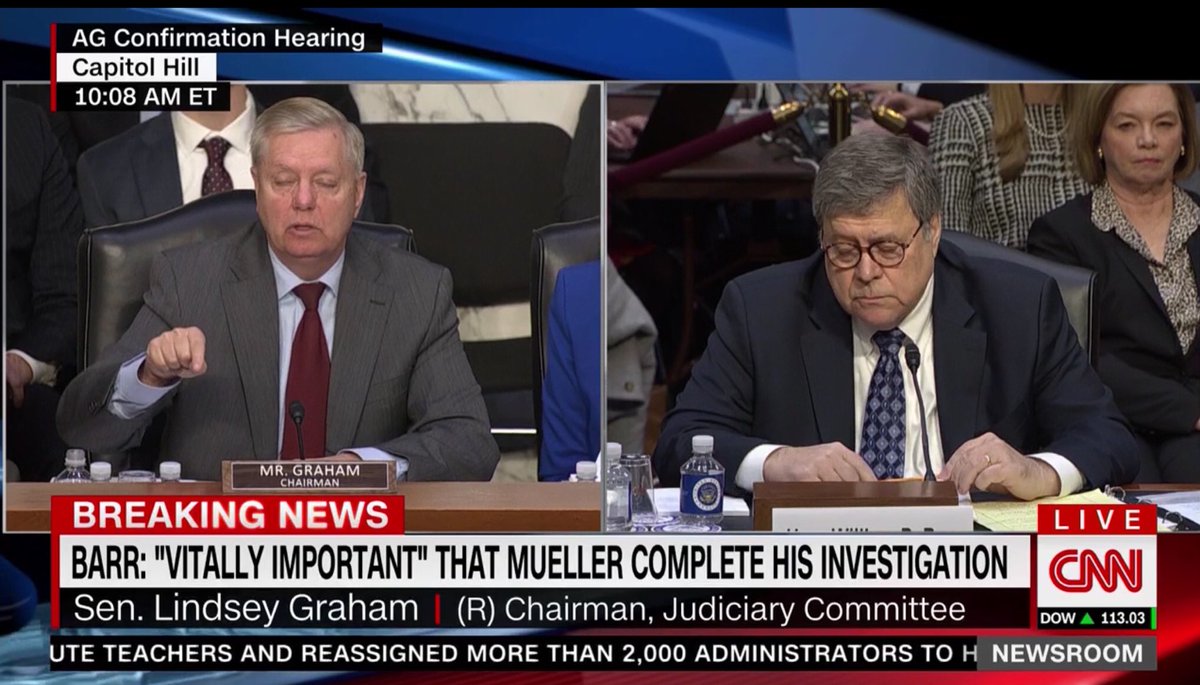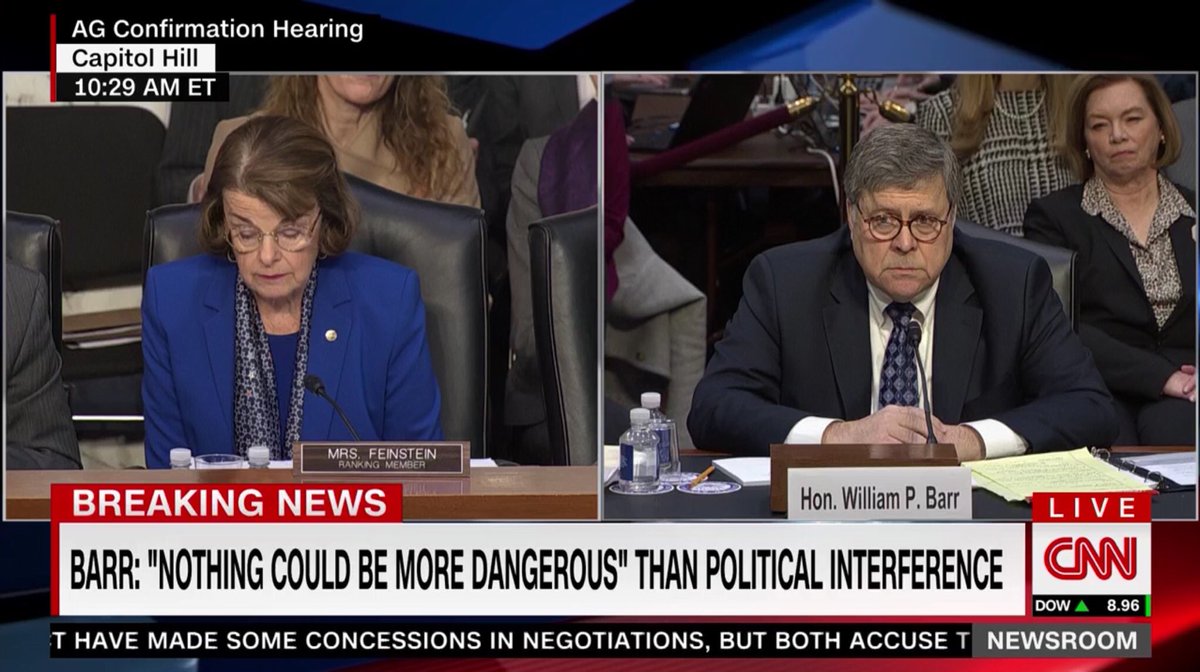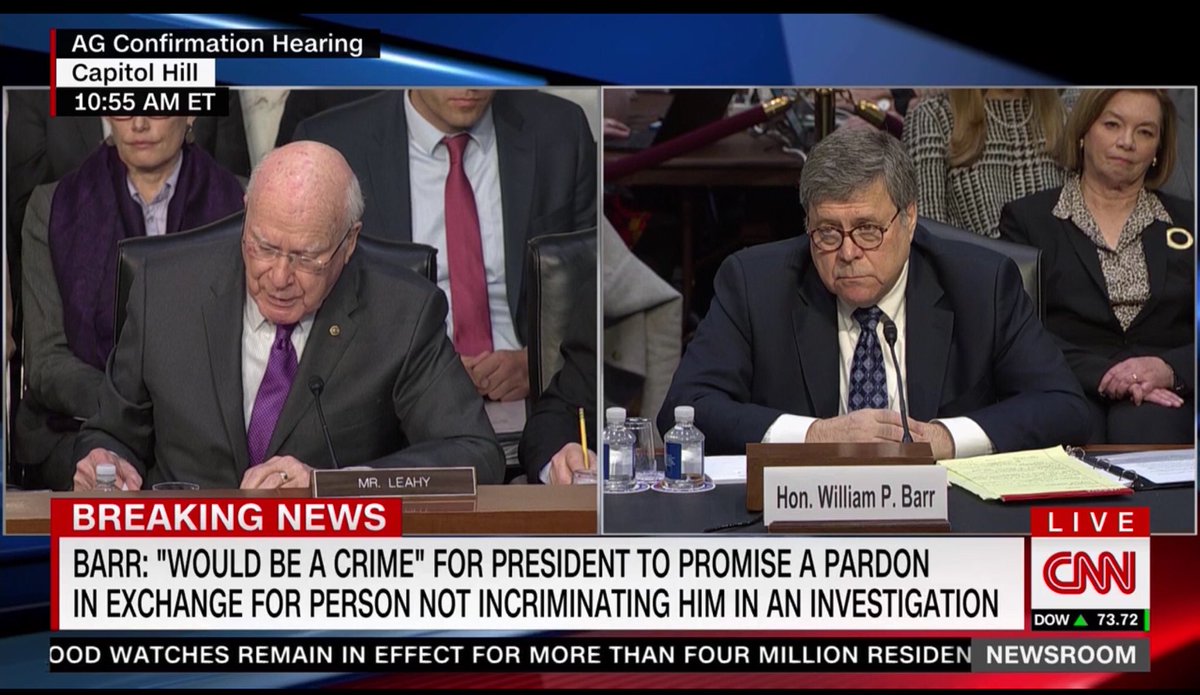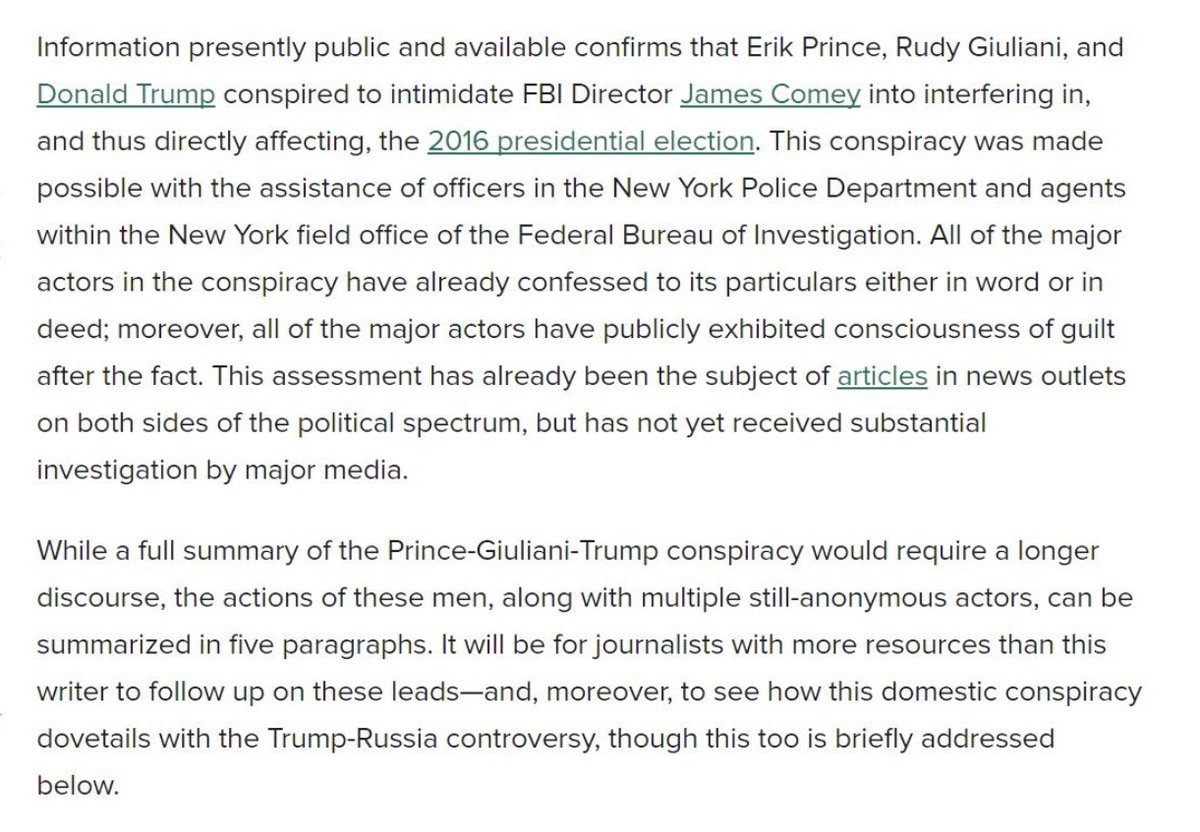Here's what Trump's defenders say: there is "no evidence"/"no proof" of collusion.
This is confusing because it involves looking at *two* levels of proof.
(1) Did Mueller have a SCINTILLA of PROOF of conspiracy?
(2) Did Mueller have enough PROOF to INDICT?
(3) Did Mueller have a SCINTILLA of PROOF of non-conspiracy collusive crimes like bribery or obstruction?
(Q) Did Mueller find PROOF of COLLUSION?
(A) Yes, as to acts of obstruction constituting "collusion" in the broad sense, and *possibly* as to conspiracy—we don't know yet, but it's likely he found *some* proof of that.
(Q) Did Mueller find PROOF of OBSTRUCTION?
(A) Yes.
(Q) Did Mueller find PROOF of COLLUSION in forms besides conspiracy or obstruction, such as bribery?
(A) We don't know. We'd have to see his report. It's entirely possible he did, and then passed it off to the other federal jurisdictions investigating those issues.
1) "Barr & Rosenstein Conclude Mueller Doesn't Have Evidence Trump Obstructed Justice"
2) "Barr: Mueller Finds No Proof of Collusion, Doesn't Offer Judgment on Obstruction."
Hopefully you see the problems now.
1) Barr & Rosenstein Conclude Mueller Doesn't Have Enough Proof of Obstruction to Convict
and
2) Barr: Mueller Doesn't Find Enough Proof of Conspiracy to Convict, Doesn't Offer Judgment on the Proof of Obstruction He Found
*Now* both @maddow chyrons are correct.
So now Republicans are calling for Schiff to resign his post on the Intelligence committee because he has all along *accurately* used the terms EVIDENCE and PROOF, for instance by saying we have "EVIDENCE of COLLUSION."
